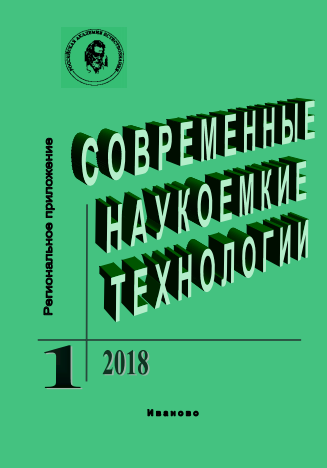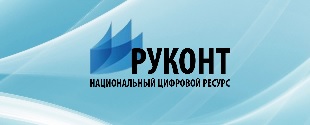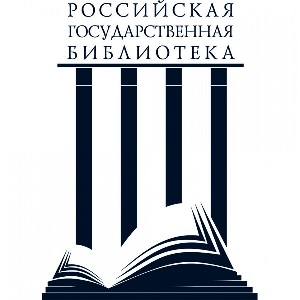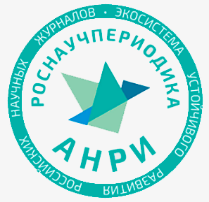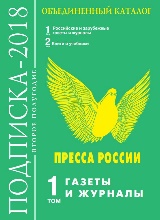ИСПОЛЬЗОВАНИЕ МЕТОДОВ ИНТЕЛЛЕКТУАЛЬНОГО АНАЛИЗА ДАННЫХ В БАНКОВСКОЙ СФЕРЕ
Аннотация
Интеллектуальный анализ данных с каждым годом становится все более актуальным направлением исследования во всех сферах жизни людей: банковский, страховой, государственный сектора и др. Кредитные институты столкнулись с необходимостью обрабатывать большие объемы данных с возрастающей скоростью. Используемые в кредитовании модели, такие как скоринг, стали комбинироваться с методами машинного обучения или интеллектуального анализа данных. В статье рассмотрено понятие кредитного скоринга. Кредитный скоринг позволяет упростить работу кредитных специалистов в банковской сфере и сделать оценку кредитных рисков менее затратной. Кредитный скоринг подразумевает применение алгоритмов, полученных с использованием математических и статистических методов, для деления потенциальных кредитных операций на непересекающиеся группы риска. В статье описаны преимущества и ограничения различных моделей и алгоритмов, используемых в кредитном скоринге, а также перспективы дальнейшего развития данного способа оценки кредитных рисков. Выбор и построение модели, внедрение кредитного скоринга и его применение - сложная и трудоемкая задача. В кредитном скоринге алгоритмы машинного обучения являются неотъемлемой частью и помогают избежать лишних рисков и издержек, за счёт работы алгоритмов, которые помогают сотрудникам банка принимать правильные решения касаемо вопросов предоставления кредитов.
Литература
Fokin S.A., Ksenofontova O.L. Analysis and prospects for the introduction of big data technologies in
the banking sector. Collection of scientific papers of
Russian universities "Problems of economics, finance
and production management". 2022. N 51. P. 21-26. –
EDN KGCQEW.
Smirnova E.M., Valinurova A.A., Danilova S.V.,
Valinurov T.R. Development of an approach to clustering of districts based on the KNIME machine learning tool. News of higher educational institutions. Series: Economics, Finance and Production Management. 2021. N 4 (50). P. 165-175.
Mirolyubova A.A., Ksenofontova O.L. Neural network
architectures for predicting the development of coronavirus
infection. In the collection: Consequences and challenges
of the coronavirus pandemic for the technological and socio-economic development of society. Proceedings of the
III International Scientific and Practical Conference. Under
the general editorship of Candidate of Economics S.V.
Shkiotov, Doctor of Economics V.A. Gordeev. Yaroslavl,
P. 375-380.
Gonova O.V. Modeling of socio-economic development
of the economy of the region (based on the materials of the
Ivanovo region). Modern high-tech technologies. A regional application. 2015. N 3(43). P 57-63.
Plenkin V. Tartenas M. Scoring model of credit histories. Banking Bulletin. 2015. N 6(623). P. 48-52. –
EDN GQZBRZ.
Ilchenko A.N., Ksenofontova O.L., Kanakina G.V.
Workshop on economic and mathematical methods. Study
guide. Moscow: Finance and Statistics. 2014. 288 p.
Volkova E.S., Gisin V.B., Soloviev V.I. Modern approaches to the application of data mining methods in the
problem of credit scoring. Finance and credit. 2017. Vol.
, N 34. P. 2044-2060. https://doi.org/10.24891/
fc.23.34.2044
Gonova O.V. Formation of financial results of agricultural
enterprise in conditions of economic uncertainty. Modern
high-tech technologies. Regional application. 2021. N
(67). P. 23-30. DOI 10.6060/snt.20216703.0003.
Tkachev A., Shipunov A. Credit scoring systems. Matrix approach. Banking Bulletin. 2019. N 10(675). P
-46. – EDN KFBQQZ.
Kochetkova V.V., Efremova K.D. Review of credit
scoring methods. Juvenis Scientia. 2017. N 6. P. 22-25.
DOI 10.15643/jscientia.2017.6.006. – EDN YUONYJ11. Voronin S.M., Sovertek Z.K., Berezin A.D., Larin
A.I. Credit scoring implemented using machine learning. Stolypin Bulletin. 2022. Vol. 4, N 10.
Gonova O.V. Development of an automated information
system (AIS) for planning the production and financial activities of an agricultural enterprise. Data science: Materials
of the International scientific and practical conference, St.
Petersburg, 05-07 February 2020. St. Petersburg: St. Petersburg State University of Economics, 2020. P. 91-93.
Gonova O.V. Construction of game dynamic models
of macroeconomic processes in the region. Modern
high-tech technologies. Regional application. 2011. N
(28). P. 26-34.
Mirolyubova A.A., Ermolaev A.D., Prokofiev M.B.
ARIMA - forecasting the demand of a manufacturing
enterprise. Modern high-tech technologies. Regional
application. 2021. № 2(66). P. 50-55. DOI 10.6060/
snt.20216602.0007.
Rychikhina N.S. Big data and artificial intelligence as the
basis for the implementation of regional digital projects. In
the collection: Data Science. Materials of the international
scientific and practical conference. 2020. P. 264-265.
Shekshuyeva S.V., Zenov S.V. Russian and international rating agencies: comparison of methodologies
for determining the credit rating of a commercial bank.
Modern high technologies. Regional application. 2020.
N 2 (62). P. 80–89.
Valinurova A.A., Smirnova E.M., Ksenofontova O.L.
Intelligent remote banking services and its features. Modern High Technologies. Regional Application. 2021. N
(66). P. 16-21. DOI:10.6060/snt.20216602.0002
Bushueva M.A., Vikulova E.N., Masyuk N.N. Improving the quality of the loan portfolio of a regional commercial bank as a factor in improving its credit policy. Modern
High Technologies. Regional Application. 2021. N 3(67).
P. 8-17. DOI:10.6060/snt.20216703.0001
Shirokova N.P., Stepanova S.M. Comparative analysis of deposit services of legal entities, bonds and accounts in banks of the Ivanovo region. Modern High
Technologies. Regional Application. 2021. N 3(67). P.
-52. DOI:10.6060/snt.20216703.0006
Bobkov, S. P. Simulation modeling for intellectual
support of managerial decision-making / S. P. Bobkov,
I. A. Astrakhantseva, E. A. Pavlova // Modern hightech technologies. Regional application. – 2022. – №
(69). – Pp. 61-69. – DOI 10.6060/snt.20226901.0008.
– EDN VIOOGK.


